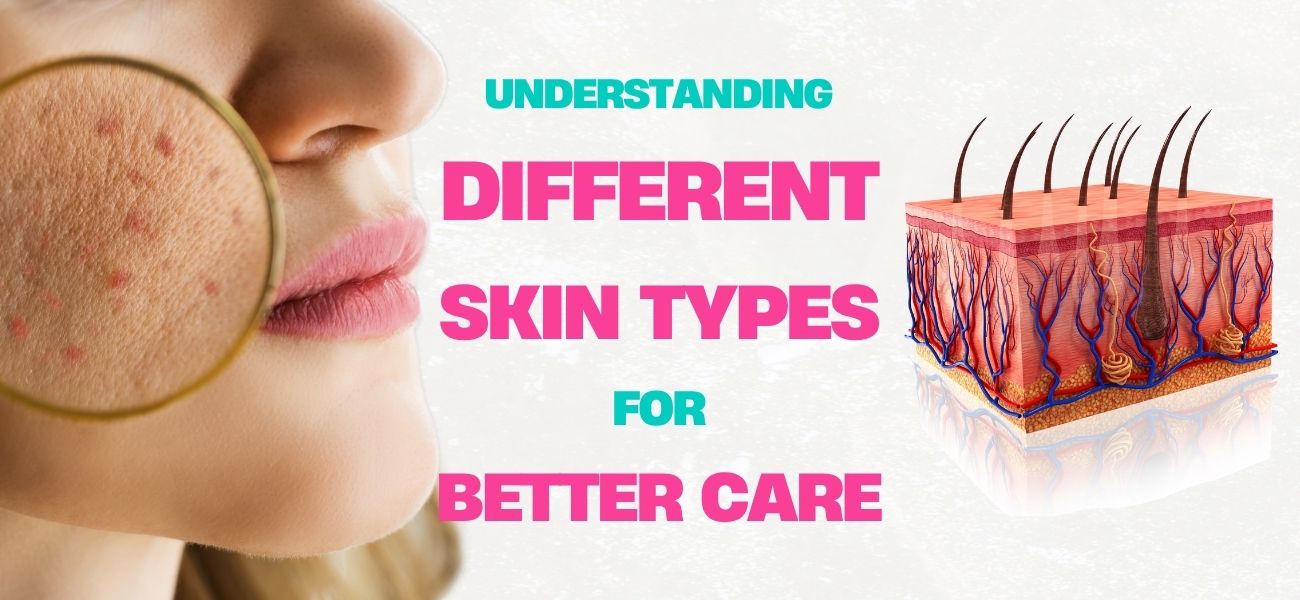
- By saammall
- June 23, 2025
- Skincare Knowledge
Understanding your skin is the first step toward building an effective, safe, and long-term skincare routine. If you’re still unsure what your skin type is and can’t seem to find the right skincare products, this is the article that SAAM has prepared for you. A comprehensive guide to help you identify different skin types, understand characteristics of each, and learn how to care for them properly.
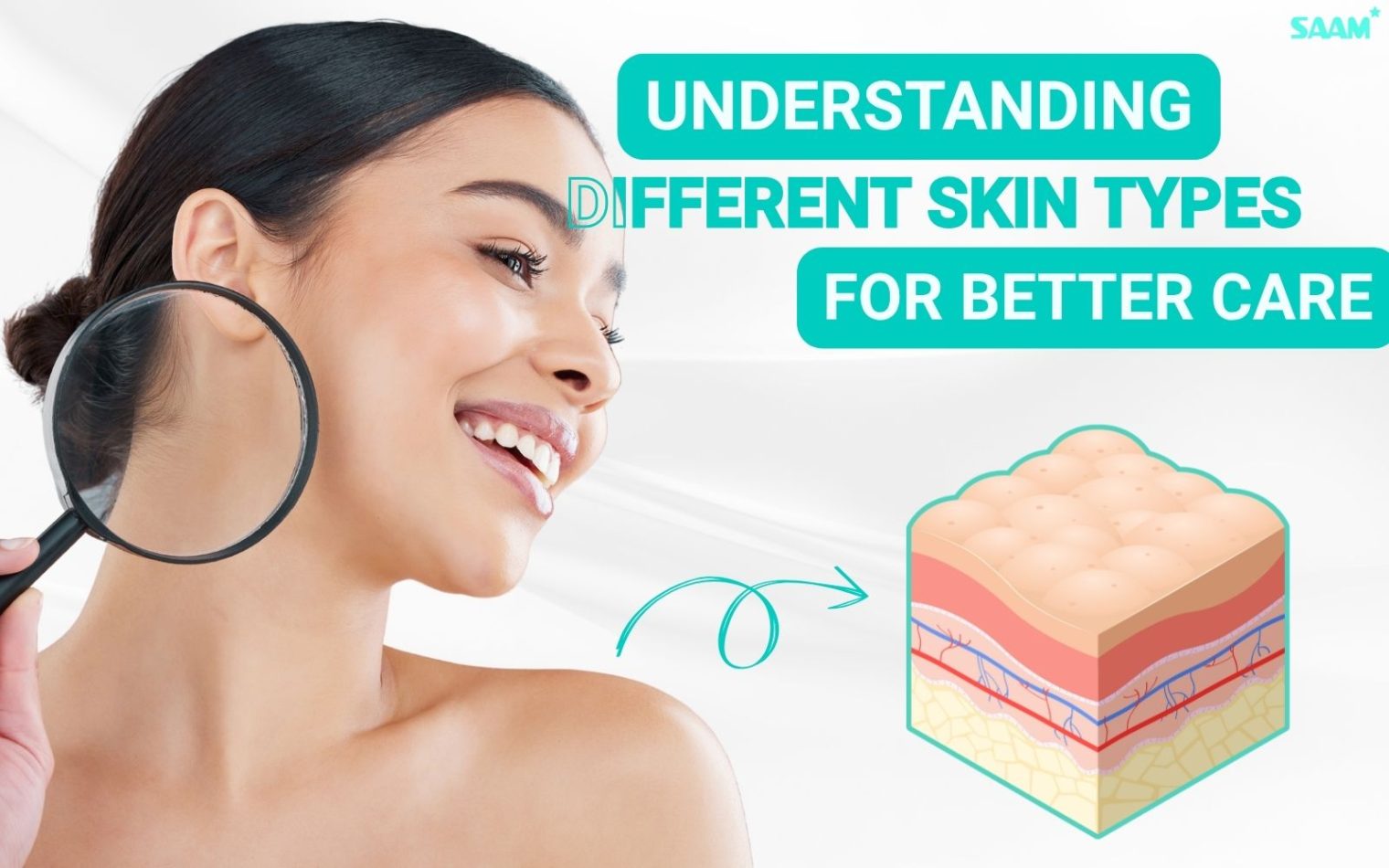
Comprehensive guide to help you identify different skin types
1. What Are the Different Skin Types?
Each type has unique physiological characteristics that directly affect its ability to protect, regenerate, and respond to environment. Skin classification is not only foundation of every skincare routine but also key factor in choosing right products.
Generally, skin is categorized into five main types: normal, oily, dry, combination, and sensitive skin. Factors influencing different skin types include genetics, age, hormones, climate, lifestyle habits, and cosmetic usage.
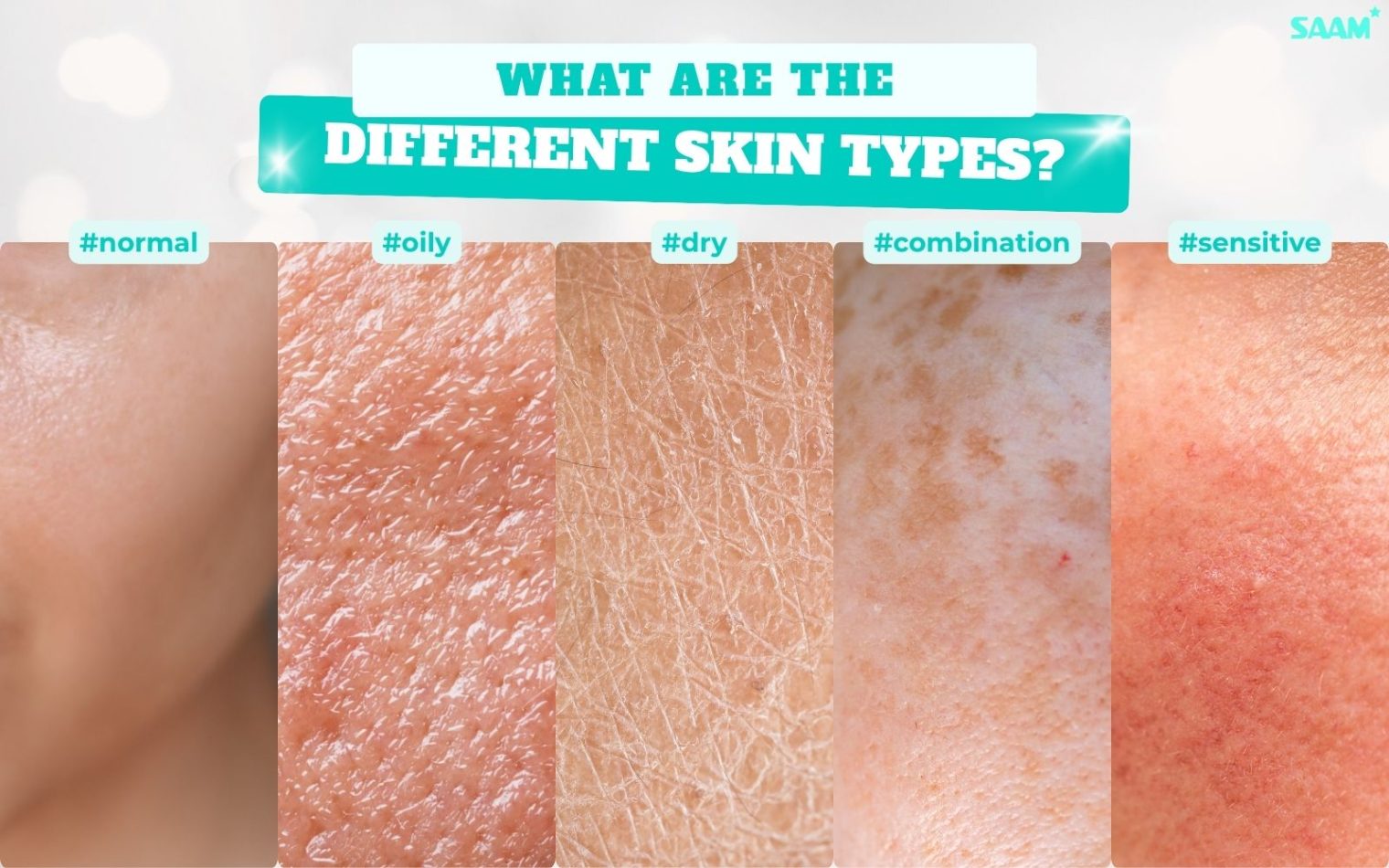
Skin is categorized into five main types
2. Characteristics of Different Skin Types
Before choosing skincare products or building routine, the most important thing is to understand what type you have. Each has a different structure, sebum secretion mechanism, and response to environment or skincare products. Below is detailed guide to help you differentiate and correctly identify yours.
2.1. Normal skin
Normal skin has an ideal balance between oil and natural moisture, neither too dry nor too oily. It is considered the most “stable” among all skin types, with minimal issues like acne, sensitivity, or flakiness. Thanks to this natural balance, normal skin tends to feel comfortable and healthy.
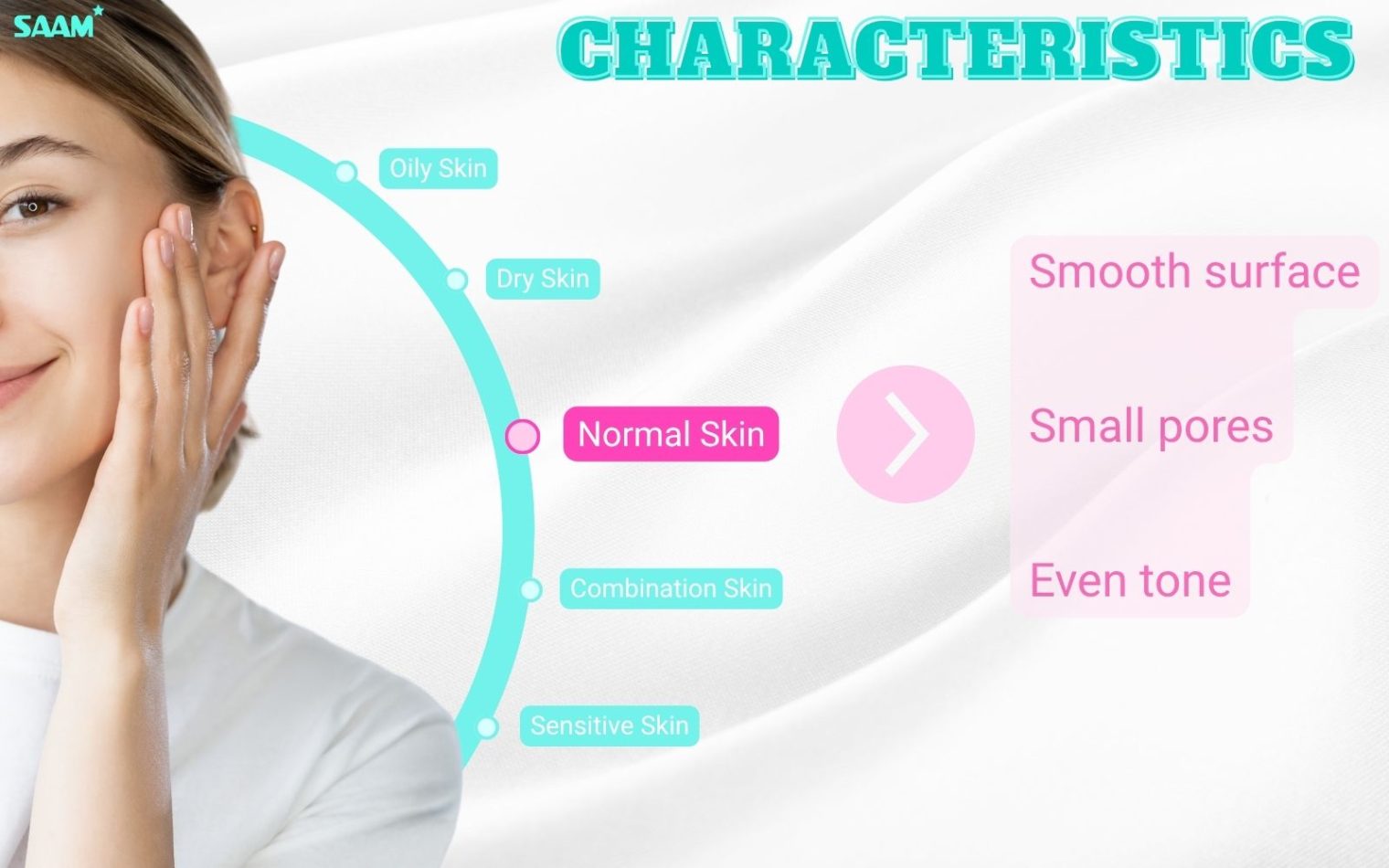
Characteristics of normal type
Characteristics include smooth surface, small pores, and even tone. It does not experience oiliness in T-zone or dryness on cheeks, even with weather changes. This skin type is rarely irritated, not prone to breakouts, and maintains good elasticity. However, to preserve this ideal condition, it still requires consistent care, suitable products, and protection from environmental factors like sun, dust, and pollution.
2.2. Oily skin
Oily skin produces more sebum than necessary. Sebum is a natural oil that helps moisturize and protect skin, but when overproduced, it can make the skin look greasy, especially in T-zone (forehead, nose, chin). This type is common, particularly in people living in humid climates or undergoing hormonal changes.
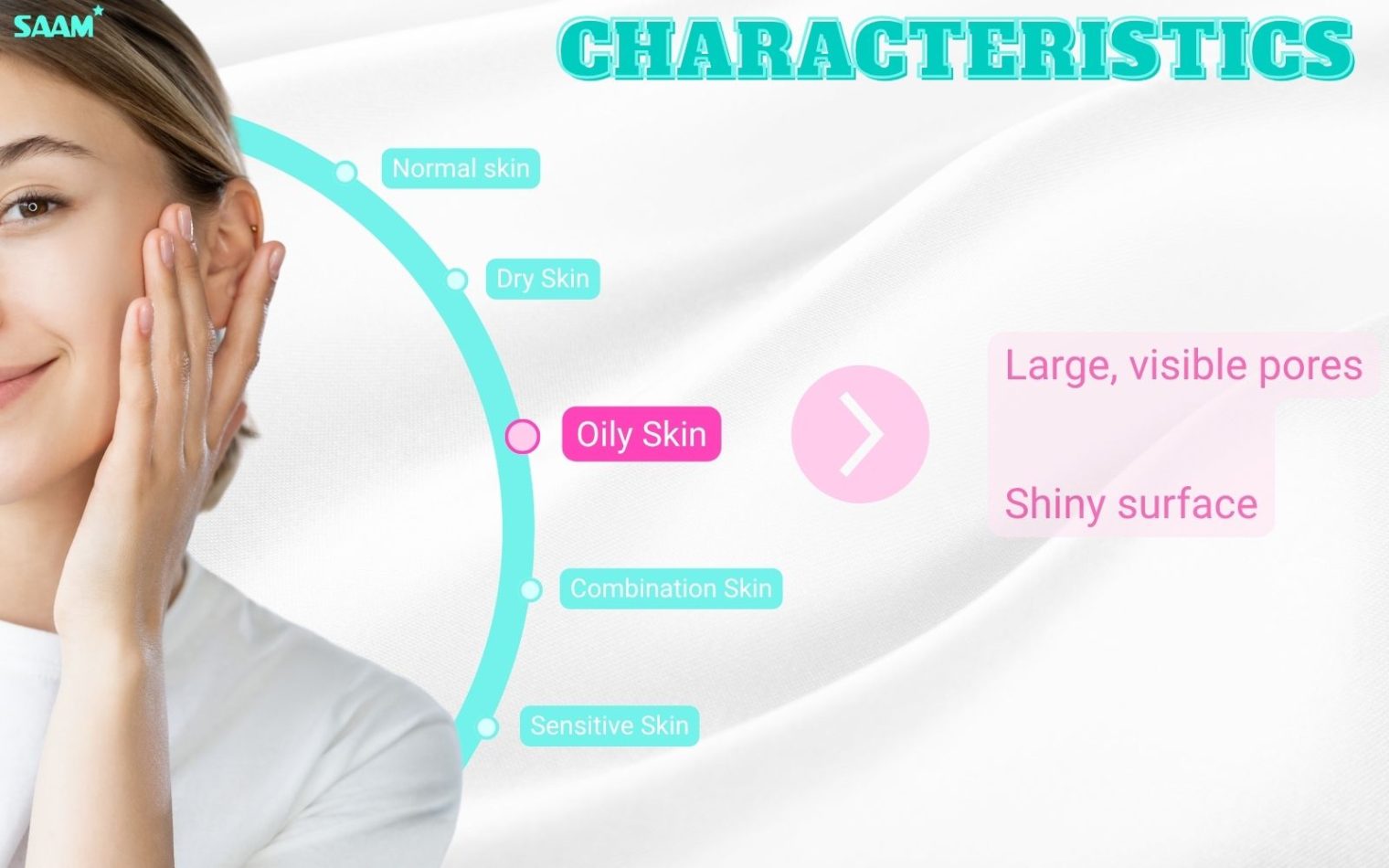
Characteristics of oily type
Easily recognized by large, visible pores, shiny surface, especially by the end of the day. These skins tend to develop blackheads, whiteheads, and inflammatory acne due to clogged pores. One advantage is that oily skin tends to age more slowly than dry skin because it’s better protected from dehydration.
2.3. Dry skin
Dry skin lacks natural moisture due to underactive sebaceous glands or a weakened skin barrier, resulting in low water retention. Unlike oily or combination skin, dry skin loses moisture through epidermis more easily, making it rough and lifeless.
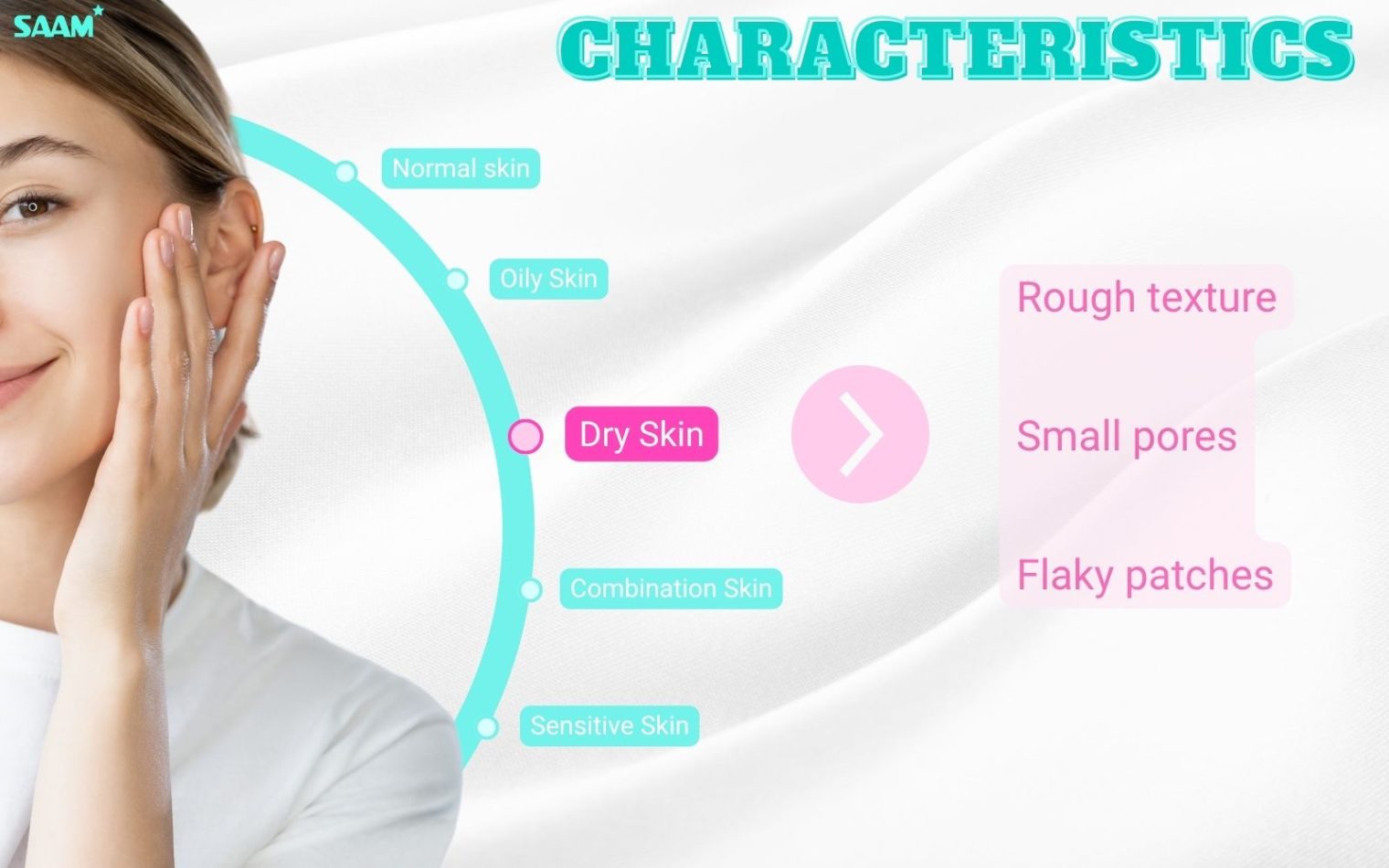
Characteristics of dry type
Common characteristics include rough texture, small pores, a lack of natural glow, and flaky patches, especially in cold weather. It often feels tight and uncomfortable after washing, with possible itching or mild irritation. Dry skin is more prone to early wrinkles due to its lack of hydration and elasticity. This skin type requires regular moisturizing and careful maintenance to strengthen its barrier and prevent premature aging.
2.4. Combination skin
Combination skin is common and unique as it combines two or more characteristics of different skin types on face. Typically, T-zone produces excess oil and looks shiny, while cheeks or nose are dry or normal. This “dual nature” makes combination skin more challenging to care for, requiring a balance between oil control and hydration.
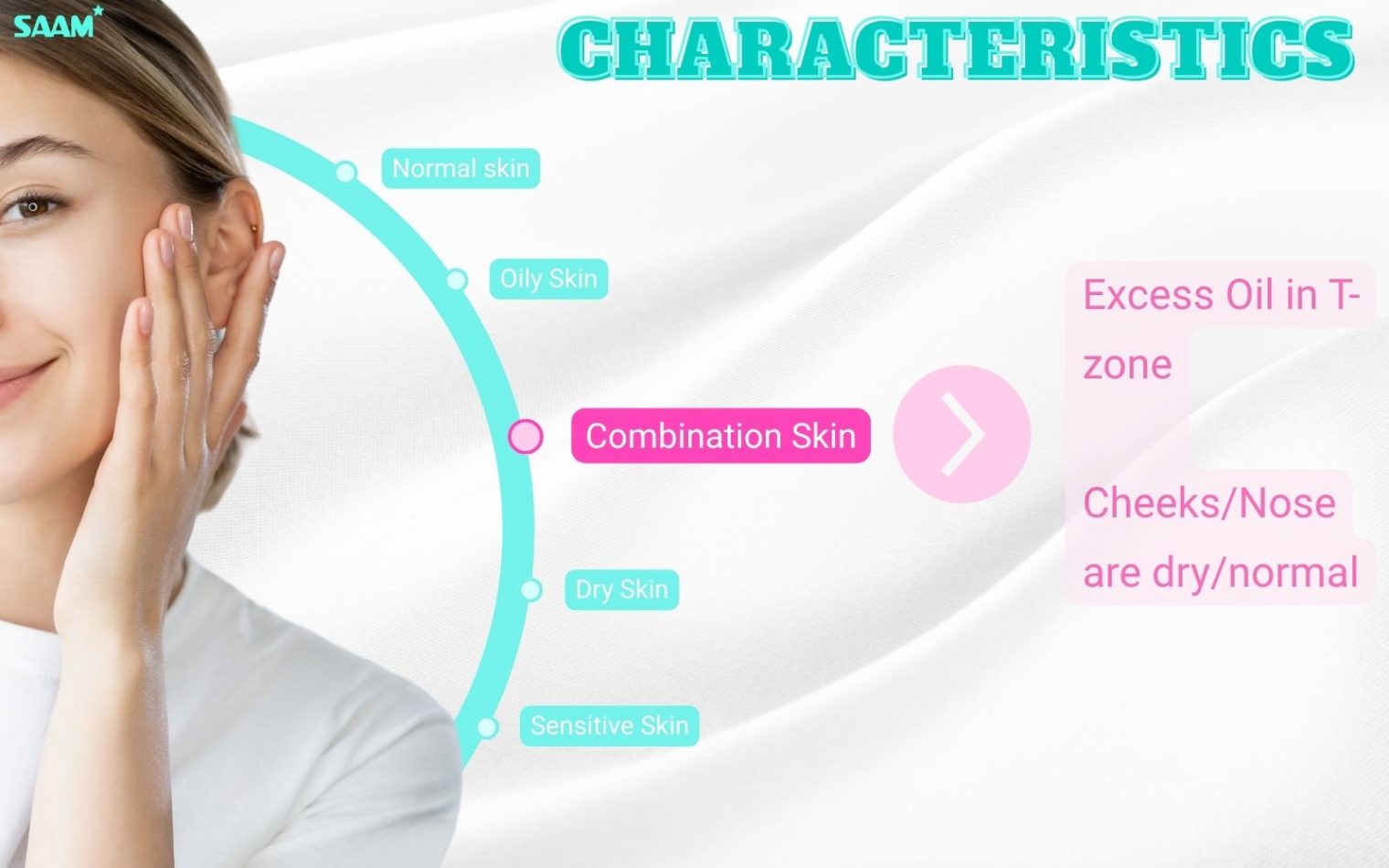
Characteristics of combination type
It often features large pores in T-zone, prone to blackheads or clogged pores due to excess oil. Meanwhile, dry areas may flake, lack moisture, and be sensitive. Skin tends to get oily midday, especially on forehead and nose, while cheeks remain dry. Weather changes impact it significantly: more oil in summer, noticeable flakiness in winter. This uneven nature requires smart product selection and multi-zoning care method to meet specific needs of each area.
2.5. Sensitive skin
Sensitive skin is easily irritated by environmental factors, skincare products, or hormonal changes. It has a weaker barrier than normal, leading to faster and more noticeable reactions to even minor triggers.
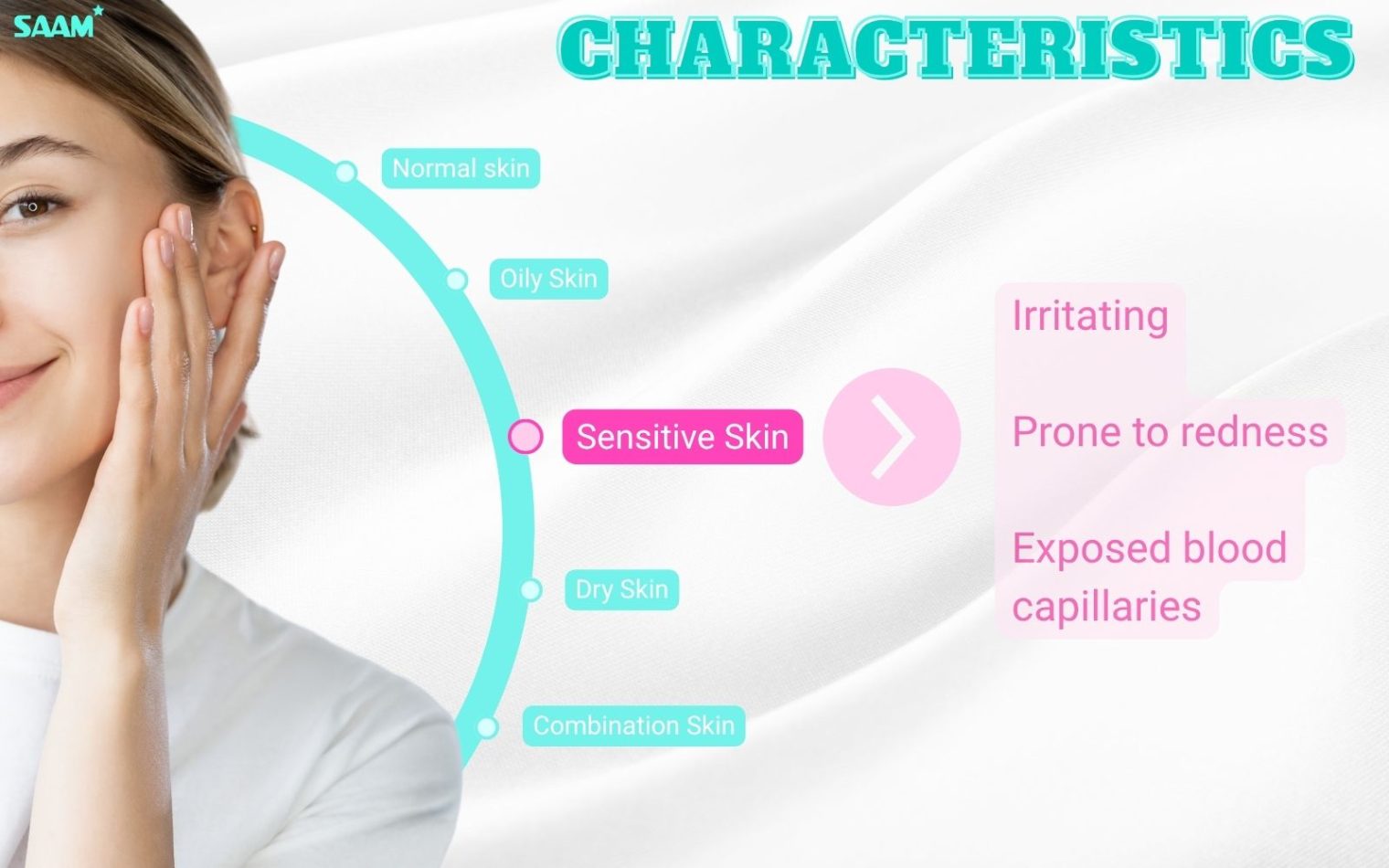
Characteristics of sensitive type
Signs include stinging, burning, or itching after using unsuitable skincare products. There is also redness, flakiness, or rash, especially with weather changes. Surface may appear thin, feel tight, and sometimes show visible capillaries. It reacts poorly to alcohol, fragrances, strong preservatives, or highly concentrated actives. Therefore, sensitive skin needs a minimalist routine, gentle ingredients, and a focus on restoring skin barrier. This is also the most difficult type to care for among these different skin types.
3. How to Determine Different Kinds of Skin
Identifying your skin type is the first essential step in choosing the right products and routine. Here are two simple, cost-free methods you can try at home. You can also combine personal observation and product reactions for more accuracy.

Two methods to determine different kinds of skin
3.1. Method 1: Feeling skin after washing face
After cleansing your face with mild cleanser, leave it bare overnight without applying any other skincare product. The next morning, examine your skin to identify following signs:
| Signs | Types |
| Tightness, rough texture, mild flaking | Dry skin |
| Oily T-zone, normal cheeks | Combination skin (oily-prone) |
| Dry cheeks, slightly shiny T-zone | Combination skin (dry-prone) |
| Entire face is oily, feels greasy | Oily skin |
| Soft, not tight or oily | Normal skin |
| Stinging, redness, or discomfort despite no product use | Sensitive skin |
Method 1 – Feeling skin after washing face
3.2. Method 2: Oil-blotting sheet test
If you’re unsure after visual observation, try this method. Cleanse your face and leave it bare for 2 hours. Then, press oil-blotting papers on your forehead, nose, cheeks, and chin for 5–10 seconds and compare oil levels:
| Oily areas | Types |
| All areas show heavy oil | Oily skin |
| Only T-zone shows oil, cheeks are dry | Combination skin |
| No oil on any area | Dry skin |
| Minimal or negligible oil | Normal skin |
4. How to Take Care of Different Kinds of Skin
Different skin types require understanding and tailored care. If your skin is currently stable, the following habits can help maintain or enhance it:
- Normal skin: Focus on moisture-oil balance, choose gentle products with antioxidants like vitamin C, and avoid overusing active ingredients.
- Oily skin: Use salicylic acid cleansers, deep-cleansing toner, and oil-free gel moisturizers to prevent pore congestion.
- Dry skin: Prioritize hydrating serums with hyaluronic acid and ceramides, lipid-rich creams, and avoid washing with hot water.
- Combination skin: Practice zone-specific care by cleansing T-zone thoroughly and hydrating dry areas more deeply.
- Sensitive skin: Simplify your routine, choose ingredients carefully, and ideally seek professional guidance. Avoid overusing treatments that may trigger irritation.

Tips to take care of different kinds of skin
5. Common Concerns and How to Manage Them
Different skin types face specific concerns, and managing them correctly is key to achieving healthy skin:
- Acne: Common with oily skin due to clogged pores. Opt for BHA, AHA, and deep cleansing. Avoid oil-based cleansers unless you know how to emulsify properly.
- Redness: A typical sign of sensitive skin. Use soothing, barrier-repairing ingredients and patch test before full-face application.
- Flakiness: Mostly found in dry skin. If unmanaged, it can accelerate aging. Choose deeply hydrating ingredients like Squalane and Glycerin, and avoid harsh acids.
- Layered care tips: For combination skin, use the same toner and serum for entire face, but customize moisturizer like gel texture for T-zone, and cream texture for cheeks.

Common skin concerns and ways to manage them
Understanding different skin types and their characteristics is the foundation for a smart and effective skincare routine. Healthy, beautiful skin doesn’t come from using many products, but from choosing right ones, understanding well, and applying them wisely. If you’re still unsure about your skin or the right routine, the SAAM professional team is always ready to assist you.
